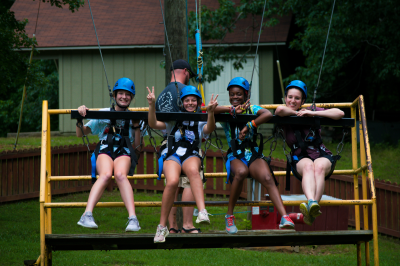Why not all peer pressure is bad

We’re all familiar with school-age peer pressure. Either we experienced it as kids, or we’ve watched our kids experience it themselves. But most of us, when we think of peer pressure, imagine examples of bad peer pressure — getting pushed into risky activities or situations by friends.
But what about good peer pressure?
“Good” peer pressure helps boost kids’ sense of who they are, where their value comes from, and even of right and wrong. Good peer pressure also, importantly, helps kids say “no” to bad peer pressure. Good peer pressure could be a sibling stepping in to encourage making the right decision in a critical moment.
It could be as simple as classmates encouraging their shy peers to speak up on the first day of class and cheering them on when they managed to conquer their nerves. Maybe a school friend responds lovingly during a moment of disappointment. These moments make all the difference.
Good peer pressure is most powerful within the family, but we all see the many forms it takes. It’s also an indispensable tool for building confident, happy, resilient kids.
Any loving, stable relationship exerts a little bit of pressure on a child. And the more important those relationships are, the more influence they will have. That’s because their power lies in the love and safety they provide.
When I was young, my friends and I were a tight-knit, joyful, playful group of kids. I felt known, seen and loved in my friend group and my family. I didn’t need to go anywhere else to meet my emotional or social needs. That security, attachment and positive feedback is exactly what you can proactively create for your own children.
One way of doing this is to meet their friends. Even become the hangout spot for their peers, if you can. Begin to have conversations with your kids about their day, about how they’re feeling and what they’re thinking. And strive to be intentional about communicating and living out your family values. Be their rock and they will lean on you.
Of course, things don’t always go the way we want them to. Research indicates that kids are under the most intense peer pressure between 10-14 years of age. A lot of emotional changes can happen in a short period of time, if your child has fallen under the influence of a friend group that doesn’t share your family’s values.
But if you’re parenting a kid who is struggling with a lot of bad peer pressure, don’t give up hope. It’s never too late to change course.
Start by figuring out the root cause of the behavior, and if possible, the reason they’ve chosen the friends they have. Most of the time, children choose friends to meet an emotional need. Through intentional conversation with them, find the need and do everything you can to meet it.
Then try to help them see the big picture. Ask them why they’re making the choices they are. Ask them if they like where those choices will lead. Most children, particularly those under the influence of bad peer relationships, have very short-term goals. They want to feel liked and accepted. That emotional need is very urgent, very compelling. It quickly blinds kids to the long-term implications of their behaviors and choices.
Sometimes it takes something dramatic to help free kids from their bad friendships, and all of the emotional pressure that comes with them. That’s why WinShape summer camps sometimes see such transformations in our campers: The campers don’t have their phones for a week, and phones are generally how kids today keep in touch.
Instead, campers are surrounded in-person by mentors and peers that cheer them on, build them up and call them to greater vulnerability and excellence. Campers give each other standing ovations, all the time, just to cheer each other on.
This doesn’t just apply positive peer pressure to the camper getting encouragement — it builds a broader culture of encouragement, a sense that we are all here to champion and support each other. It gives every camper a healthy, Christ-centered space to feel loved and safe. It helps them see who they really are, who they are to God.
But this experience of confidence and safety can weaken when they leave. That’s part of life. And as parents, we can come alongside our kids whenever they feel lost. It’s not a failure, or a demonstration of weakness. It’s a privilege.
When our kids feel lost, we have a chance to help them see again what we see in them. We have a chance to remind them how loved, safe and important they are to us and to the community in which they belong.
So, exert a little good pressure on your kids. Do everything you can to surround them with friends and mentors who will encourage, uplift and guide them. Discipline them, in the truest sense of the word. The root of “discipline” as a word has nothing to do with punishment, and everything to do with instruction and encouragement. It’s the same root word as “disciple”: learner, follower.
As parents, we are meant to love, instruct and discipline our children. We build them up, model what’s right, and do everything we can to impress upon them just how precious they are in our and in God’s eyes.
Our kids are wired to follow something as they grow. It’s our job to make sure they’re following the right things.
Amy Lowe is the director of WinShape Camps for Girls and oversees WinShape Camps for Families. She has a Bachelor of Science in Business Administration from Samford University and a Master of Arts in Theology from Fuller Theological Seminary. Like most other moms, her hobbies include laundry, running the robot vacuum, and unloading the dishwasher.




























